I was looking back at old pictures of our flock and I can’t believe that our original Icelandic sheep are going to be six this summer. How is that even possible?!? We started out with a flock of four from a farmer we found on craigslist (say that 4x fast) and now we are just shy of 15 ewes. This is the first year we do not have a ram because we had hoped by this time to be traveling. Jokes on us. But all in all it’s been a nice quiet time on the farm. Uneventful but that is not always a bad thing. Although, lambing season is the best kind of event. There is nothing better than walking out to feed and check on the animals than to see new tiny baby lambs hobbling around in the barn.
There is so much symbolism in the bible with sheep and lambs. When you have them you study their traits and you really begin to understand some of the teaches Jesus was trying to get across. And sometimes you’re like wait a minute, hey now! As sheep are not always the brightest animals. But they’re sweet, instinctual and always skeptical.
It’s been a while since I did an Icelandic sheep update so I posted a Q&A on instagram asking what people wanted to know about our Icelandic sheep. Many of the questions were around maintenance, care and time allocation. I will say sheep are not simple by any means but they are relatively one of our more low maintenance animals on the farm.
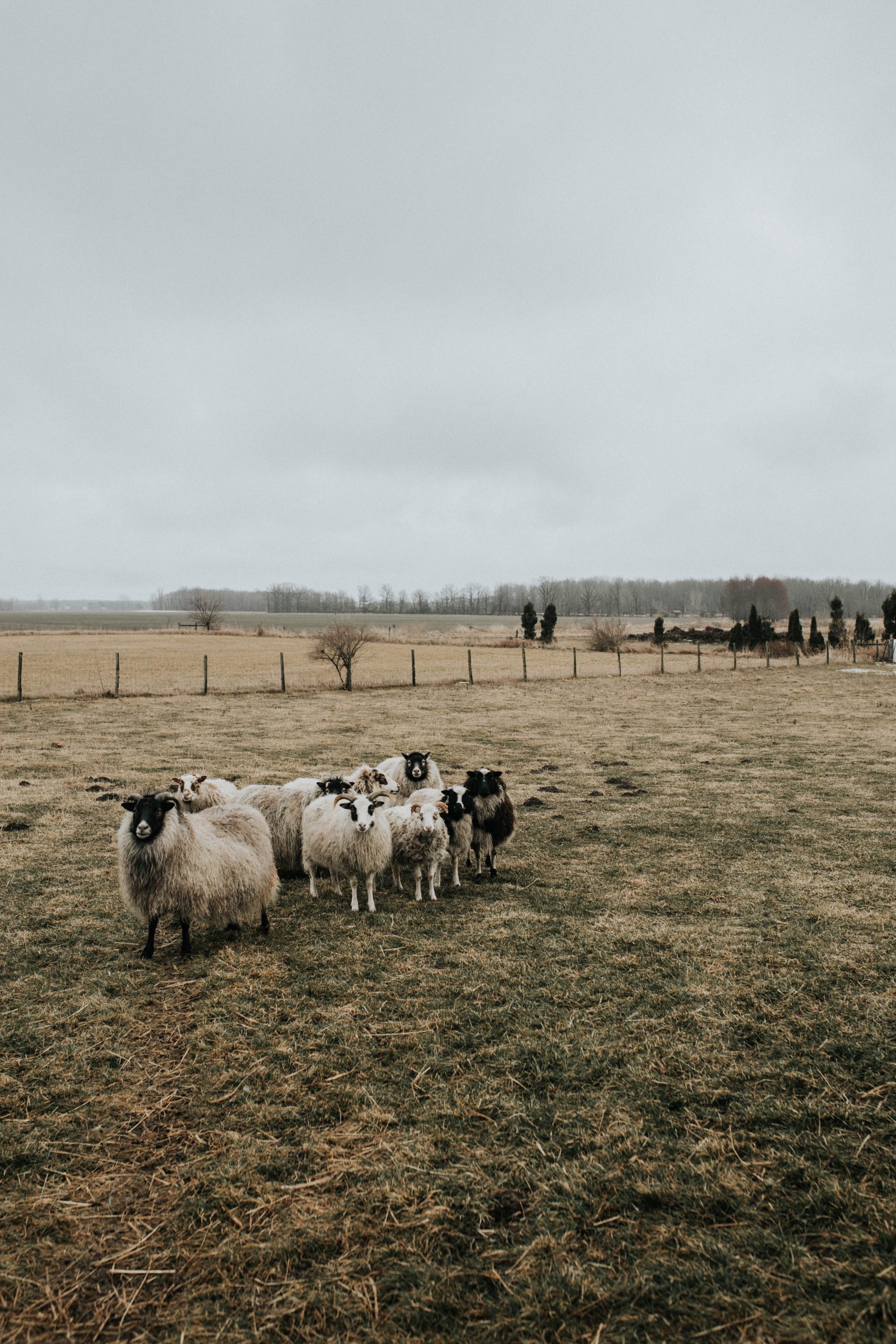
Q. What kind of sheep are they?
A. This breed is Icelandic Sheep. We decided to start with this breed because they are known for good meat quality, high quality wool and usable milk. They are also known for smaller lambs which makes breeding easier and thank goodness, more hands off. We have never had to intervene during a lamb birth. Although I’ve watched the youtube videos, gulp. I’m ready.
Q. Why are they so unfriendly?
A. I like to joke that my sheep are rude because they are incredibly standoffish. They will come right up to you if you’re the one getting the food ready and they’ll even stomp their foot with impatience. I’ve never been pushed around by any of our sheep even the rams. Betty is definitely the head honcho of the herd and things she’s the boss (i’m the boss) the only time I’ve ever been remotely concerned about her aggression was with Otto once and I don’t think she knew what to make of him. Even then she just stomped her foot a few times and put her head down. Nothing serious but nothing I didn’t turn my back on either.
Q. Do they get sick often?
A. Yes and no. I say that because when we first bought our sheep we were learning. Sheep are very susceptible to parasites out in the fields so once or twice a year we have to “drench” them which is basically giving them a specific time of medicine with a syringe. It sounds intense it’s really not and takes about an hour to catch and administer to our entire flock. Sheep are prey animals and they know it. The tricky part is that you do not know if they are sick until they are really sick. They do this because if they show weakness they’re usually the prey. Over the years our amazing vet has taught us early warning signs like eye checks and stool samples *yuck. We have learned that by doing a few simple maintenance tasks each year, it drastically cuts down on disease. Barn cleaning, drenching and we have our fields checked for parasites and harmful plant growth annually.
We have lost three rams during breeding season and we couldn’t figure out what was happening. They would breed and be perfectly fine and then would literally drop dead. Three years in a row. We were not only heartbroken but so confused because the ewes were.. fine? We started calling them the black widows. The vet came out each time and the third time we finally found our answer. Basically the ram was busy doing…breeding season stuff then would overeat from exhaustion and die of bloat. yes. you read that correctly. We do not have a ram at the moment but once we figured that out we allow the ram to breed, then separate and ration the food. Problem solved.
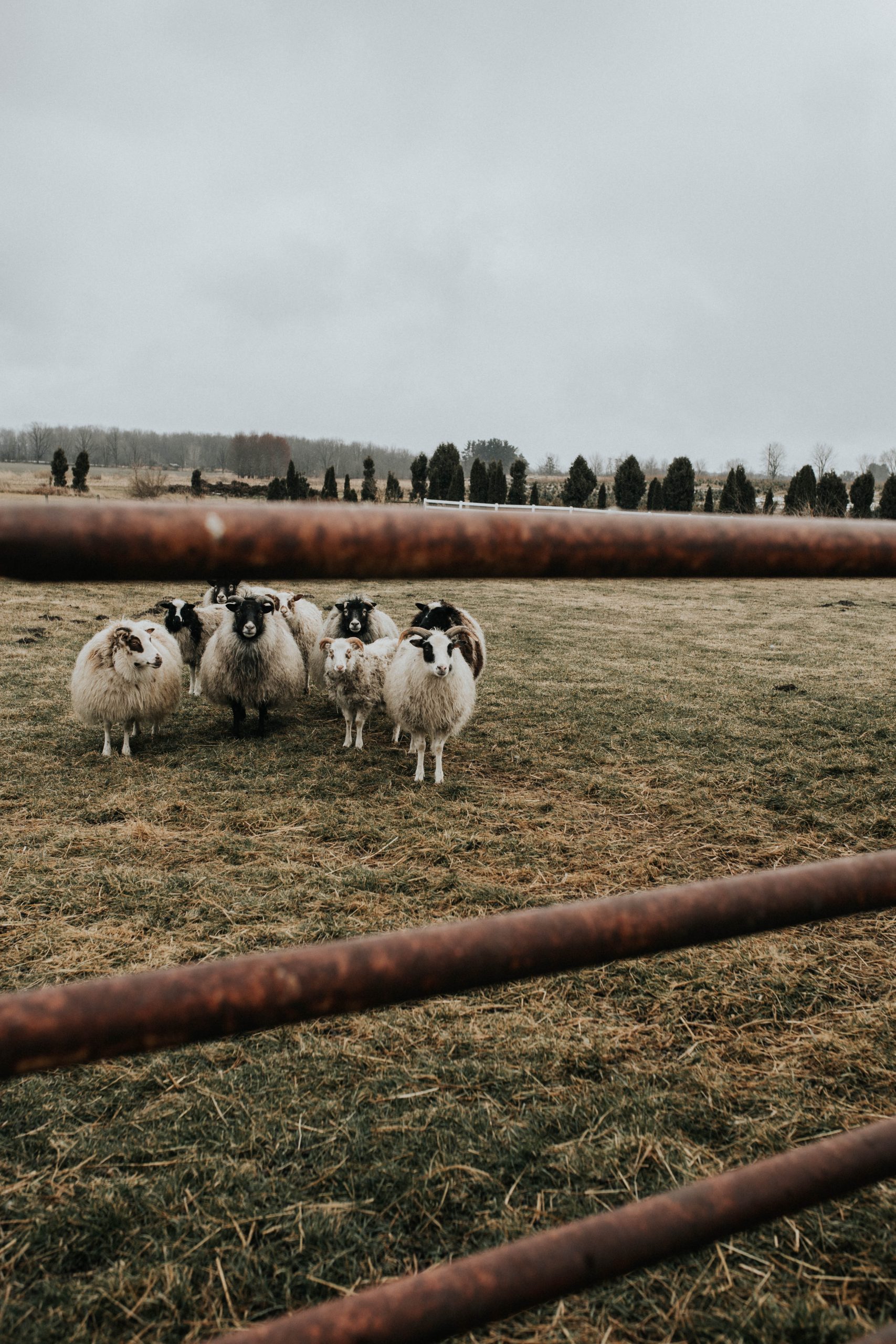
Q. Why do you have sheep?
A. We have 12 acres of land and about 6 of it is hay field. We have our flock on a rotating pasture of four acres and they keep it mowed down. We also bale enough hay to feed them over the winter. They’re our little lawn mowers. We originally bought them to raise for meat but… couldn’t do it. Which leads me to my next question..
Q. Pets or Protein?
A. Both? Pets for us, protein for others (and sometimes pets for others). We cannot breed a ram born from our flock with the rest of the flock so they either have to be castrated thus becoming a wether, sold or butchered. We have sold a majority of our rams to other flocks for breeding which helps offset the costs of supplemental grains and vet care. Over the past few years we have sold some rams to local families for meat. We eat a lot of lamb but we use the funds from the sale of ours to buy lamb from S & S in Michigan. I just can’t with my own.
Q. What is the daily care like, what happens when you travel, and other routine maintenance.
A. When we started adding animals to the farm we knew we had to have systems in place for when we were gone. Sheep are on the day to day relatively low maintenance animals. In the summer they graze all day for their food supply and in the winter we have a hay trough. About every three days the trough needs to be filled back up. We have it set where they eat from the bottom so fresh hay continues to fall down to their level. We also have two large water troughs in the barn that get refilled about once a week (more so on hot days). Joe checks things out when he gets home from work but most times they need replenishments about every three days. My uncle lives just up the road and when we are gone he usually pops over to check on things and feeds the animals. We’re lucky to have him!
In terms of routine maintenance the sheep are sheared twice a year. We found a man named Timothy at an Icelandic sheep shearing demonstration and he comes to shear the wool and trim their hooves. We donate the bags of wool to local weavers. (My apologies if that is not the official title of your craft!) It is about $200 to have our flock of 13 sheared and hooves trimmed each visit.
Once a year in the spring we also do a major barn cleaning that takes an entire Saturday. The doo doo is eventually used in the garden.
Breeding season is also a little more hands on because you have to make sure the mothers are taking care of their newborns. We’ve had a couple issues with bab’s utters (they get clogged and she required a lot of help last year) (We no longer breed her). We also had Betty give birth to triplets one year and she rejected the white and black spotted one but took to the two brown ones. You might know that little white and black spotted one as grace 😉
Q. What are their names?
A. The three ewes we started with are babs, betty and bae bae. Stan was our first ram but we previously read about what happened to him. From bae bae we have her first lamb booboo. We also have a black and white spotted ewe named cow. Otto clearly didn’t get the whole B name trend but it was so cute so Cow it is. We have to still name the rest of the flock and some sunny day I’ll head out there and try to get a picture of each one so we can properly showcase the flock.
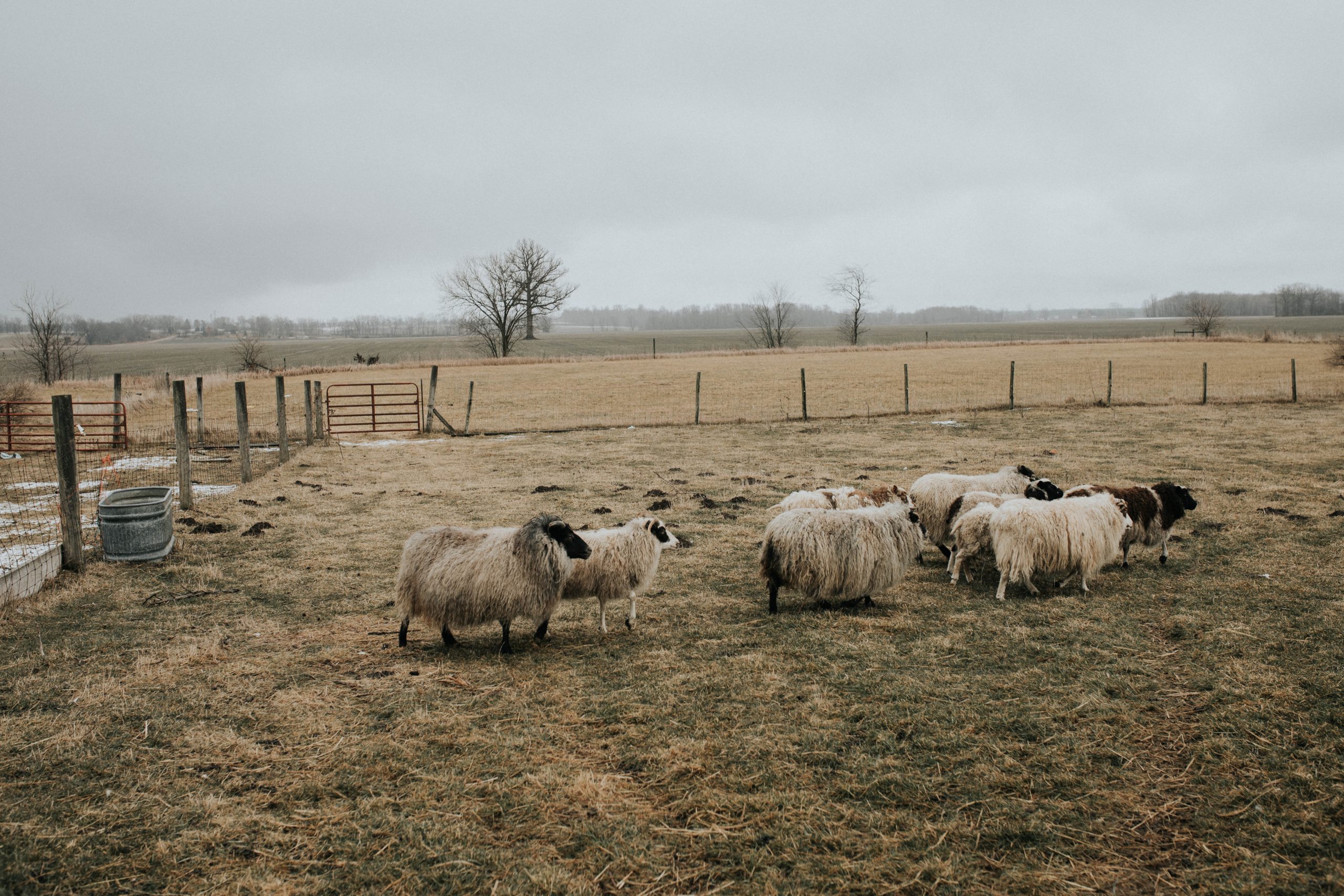
We really enjoy having Icelandic sheep and are considering adding another breed to the herd. We would not cross breed but keep the males separate. Sheep are for the most part gentle creatures and there is no more beautiful site than watching them graze on the hill on a foggy morning with the sun peeping up behind them.
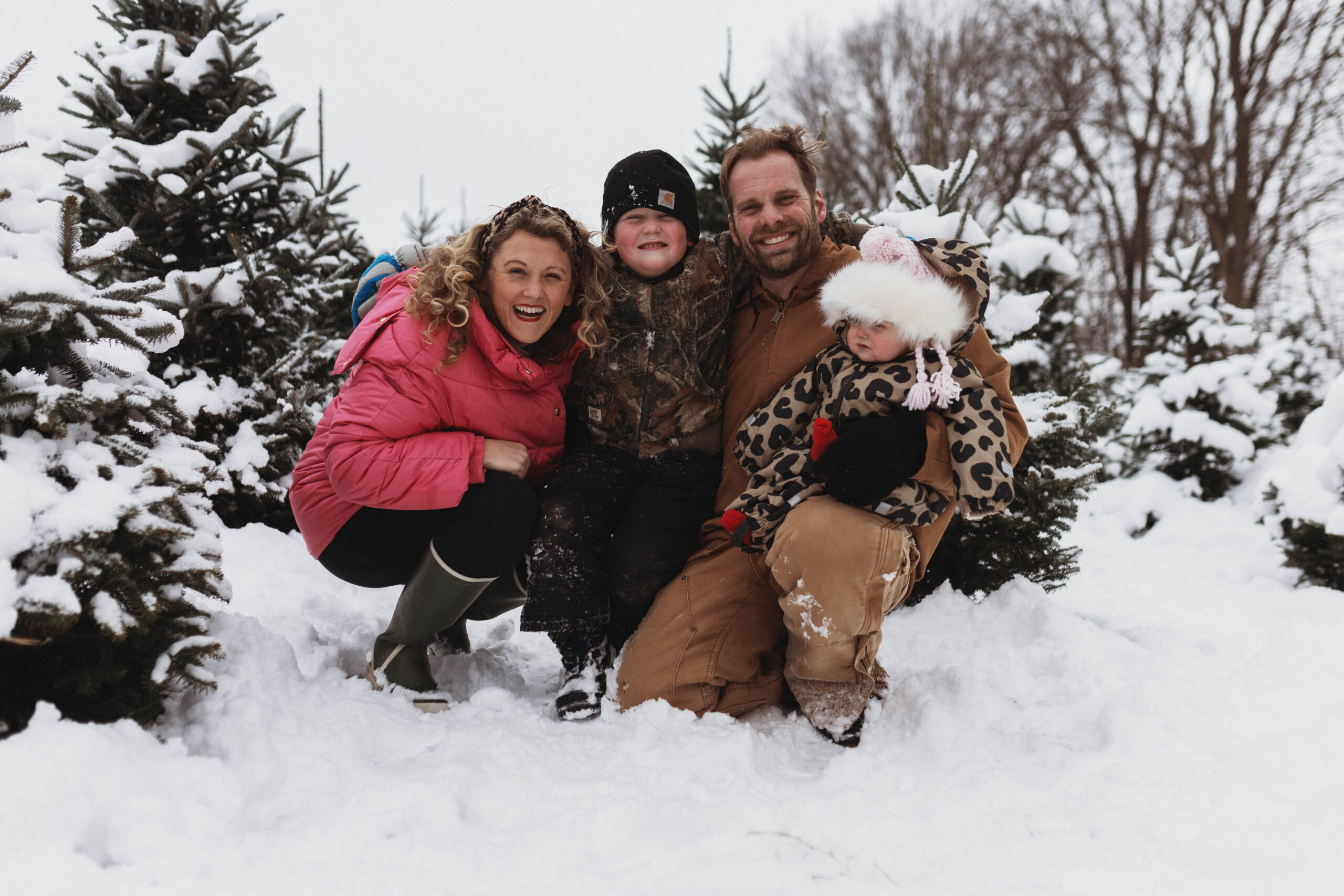
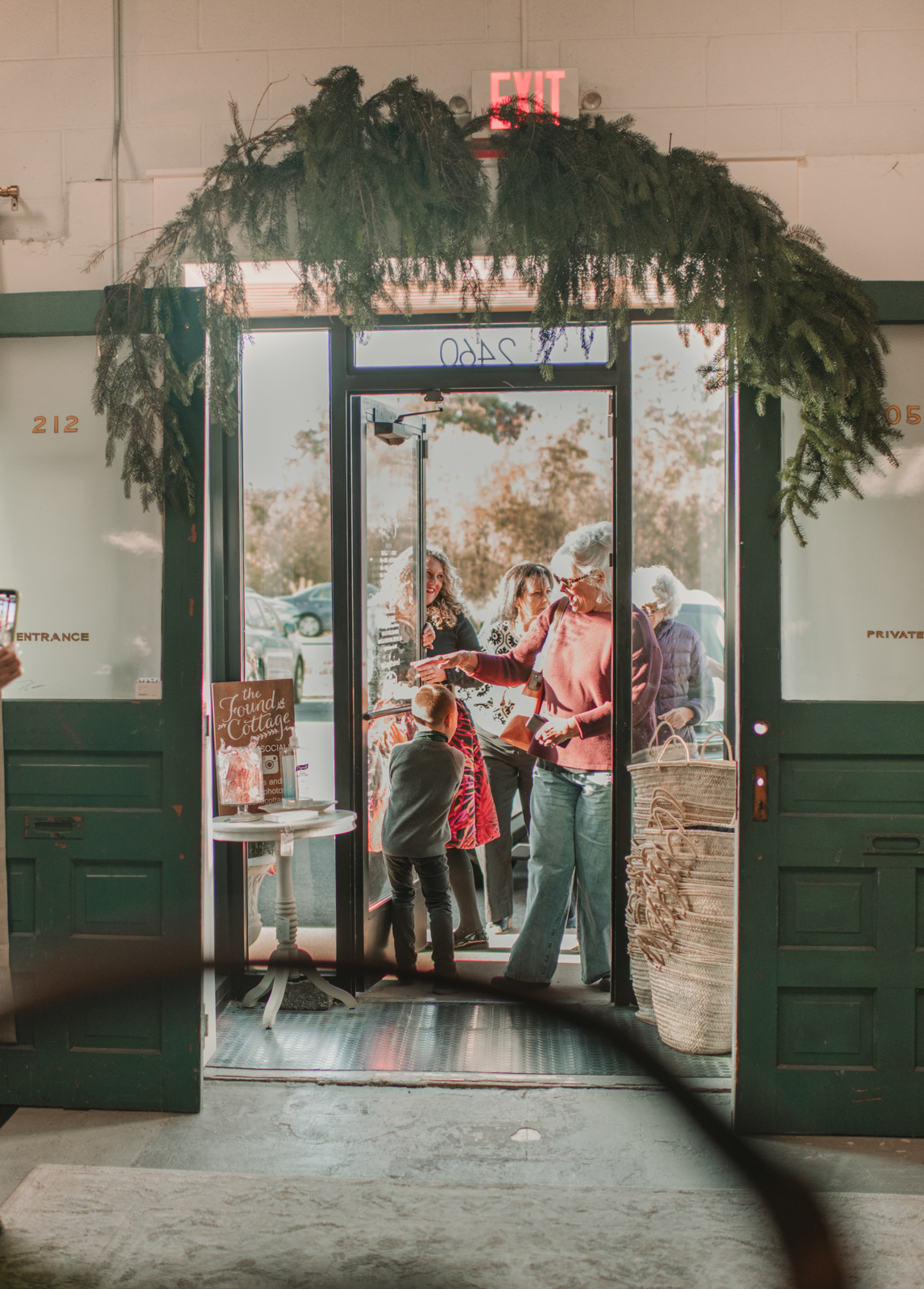
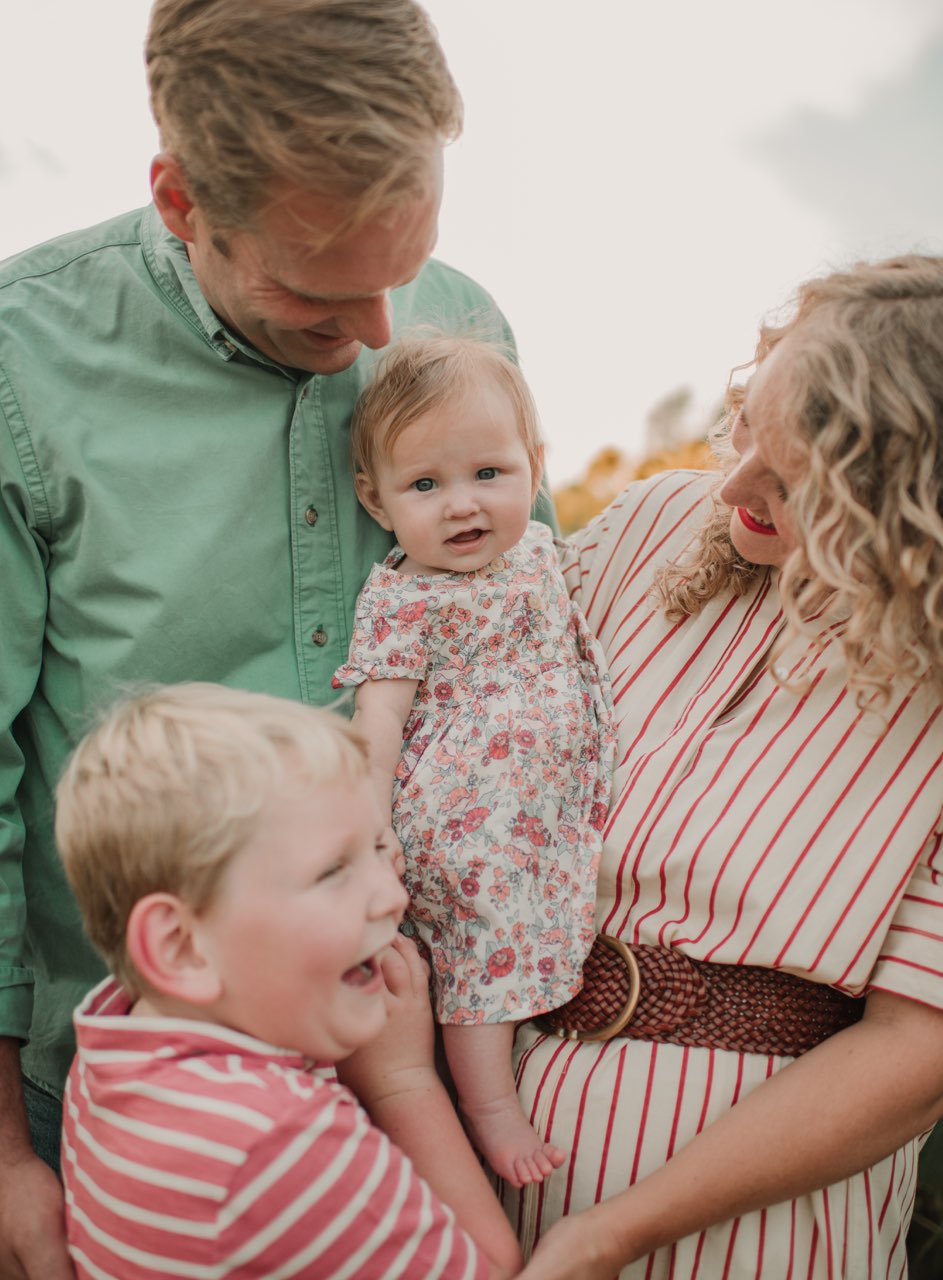
Thanks for sharing about your sheep – it was fun to read! I actually even read most of it aloud to my husband who enjoyed it as well.
Thank you! LOL go figure the day I post about their low maintenance everything in the barn is frozen haha.
I love reading your stories about the farm animals. Are your chickens laying eggs for you. Will you have more animals added to the farm. Glad Otto helps and learning.
I never thought about Icelndic sheep but have been turned onto them recently. I would like them for the fiber and milk….I know I couldn’t harvest these. I would like Icelandic goats too!
Their fiber is gorgeous! Have you ever gone to the Michigan Fiber Festival?
Why are Icelandic sheepare only found in icy cold regions?